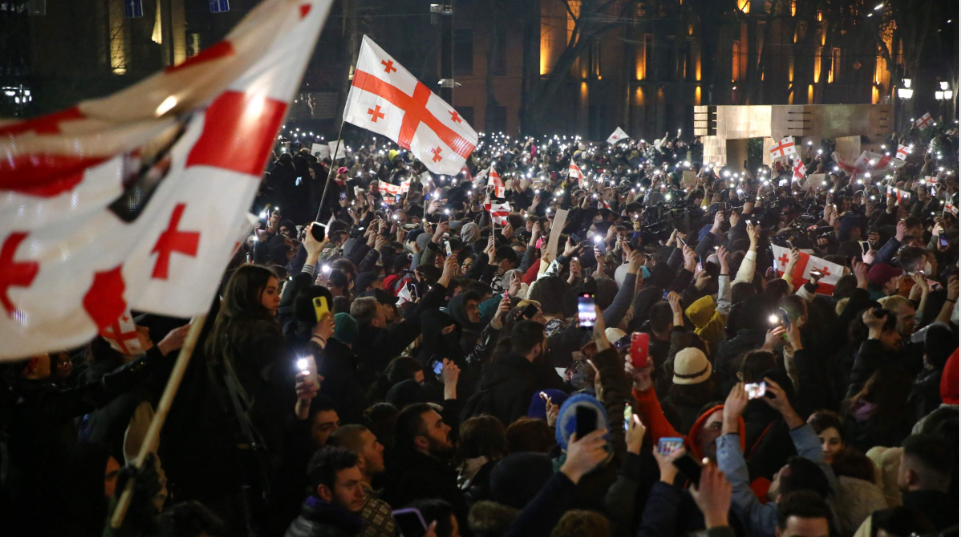Georgia Adopts Controversial ‘Foreign Agents’ Bill Amid Protests
Georgia’s parliament passed a controversial “foreign agents” bill on May 14, despite strong opposition from within the country and from around the world. The bill says that news outlets, NGOs, and other groups that get more than 20% of their money from outside the United States must register as “foreign agents.”
Content and Implications of the Bill
Concerns have been raised about the possibility of similar harsh laws being passed in Georgia, as seen in Russia, where similar laws have been used to silence criticism and keep civil society in check. If the bill is passed, it could hurt Georgia’s plans to join the European Union, which goes against the government’s support for the EU and NATO.
Justifications and Criticisms
Some people who support the bill, like Bidzina Ivanishvili, say it’s necessary to make NGO funding more clear and stop Western countries from meddling in Georgian matters. Some people, like President Salome Zourabichvili, are against the bill because they say it is similar to Russian laws that are meant to silence free speech and democracy. They see it as a move toward Russian influence.
Public Response and Government’s Stance
After the bill was brought up again, there were huge protests all over Georgia, and people were reported to have gotten violent and fought with police. Prime Minister Irakli Kobakhidze is still determined to pass the bill, saying that it is the will of the majority and necessary for national sovereignty, even though there is a lot of resistance inside the country and possible sanctions from other countries.
International Reaction
A lot of foreign rights groups and the European Union are very worried about this bill because they say it goes against democratic values and could make it harder for Georgia to join the European Union. People inside and outside of Georgia are still keeping a close eye on this law. Many are worried about what it will mean for democracy and international relations in the long run.
What is EU accession politics?
- In order to join the EU, countries must make sure that their political, economic, and legal systems are in line with EU standards. These rules were set out in the Copenhagen Criteria in 1993.
- The longest bid is from Turkey to join the EU, which has been going on since 1987.
- Iceland put in an application to join the EU in 2009, but it was officially withdrawn in 2015.
- The EU sometimes freezes or uses sanctions to force candidate countries to make the changes they need to make. This was seen with Serbia and Kosovo problems.
- During the accession process, there is a lot of focus on fighting corruption and making changes to the way government works. The EU’s focus on these areas became clear when Romania and Bulgaria joined in 2007.
Month: Current Affairs - May, 2024
Category: International / World Current Affairs • Legal & Constitution Current Affairs







